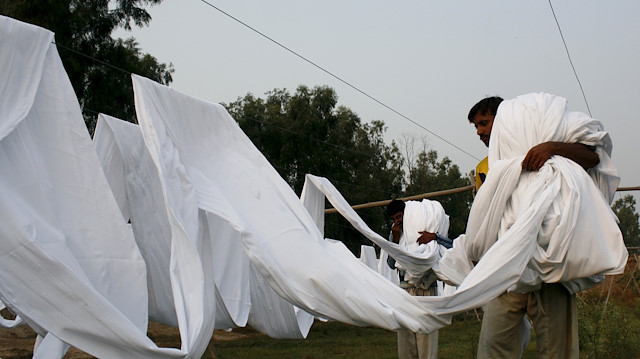
CIVIL UNREST
Some factories do not provide clean drinking water, deduct the salaries of workers who fall sick, sack pregnant women and beat up workers who refuse to do overtime or resign, according to the report.
HRW called on the government to strengthen its labour laws to comply with international standards.
"Non-compliance of labour rights can result into industrial disputes and turn into severe situations of civil and political unrest," said Ingrid Christensen, Pakistan director of the U.N. International Labour Organization.
In 2017, protests rocked the country after a leading Pakistani clothing brand, Khaadi, sacked 32 workers for demanding better working conditions.
Such situations could be avoided if workers had better union representation, said Nasir Mansoor, deputy secretary general of the National Trade Union Federation.
Although laws have been revised to make it easier to form unions, factories still obstruct such efforts because they fear it may lead to higher costs, labour activists say.
The garment industry accounts for over half of Pakistan's export earnings, supplying buyers in the United States, Europe and China.
But as companies come under growing pressure from retail customers to ensure slave-free supply chains, labour experts urged foreign brands to work only with law-abiding factories.
"This would surely involve additional costs to the product but foreign importers are usually willing to compensate," said Majyd Aziz, president of the Employers' Federation of Pakistan.
Hello, the comments you share on our site are a valuable resource for other users. Please respect other users and different opinions. Do not use rude, offensive, derogatory, or discriminatory language.
The floor is all yours.








